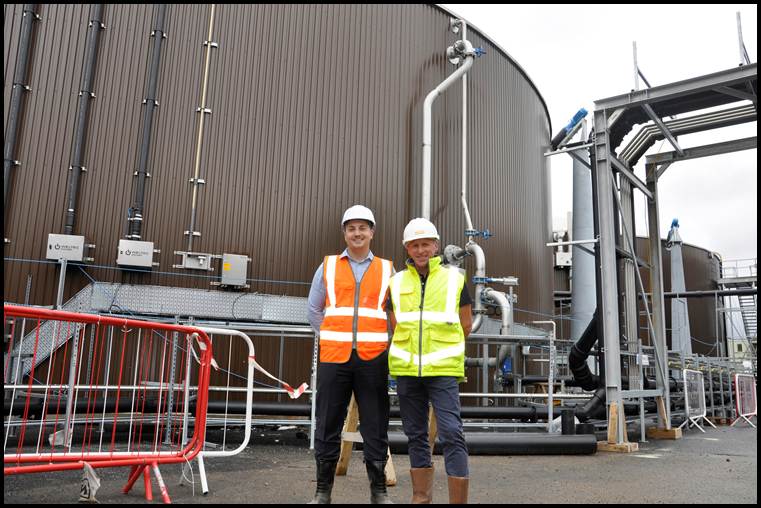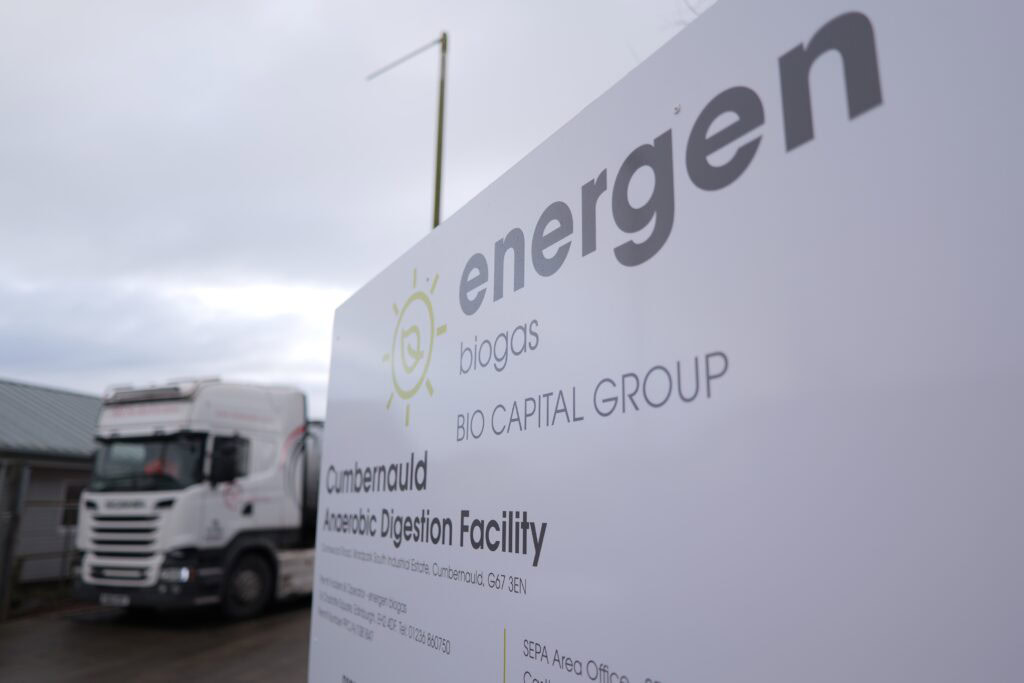The Chartered Institution of Water and Environmental Management has today (June 23) called for changes to the “complex” regulatory landscape which it says prevents water firms from filling spare capacity in their anaerobic digesters with organic waste.
But, the Association for Organics Recycling has hit out at the trade body, claiming such a change could create a rift between the two sectors, as well as adversely impacting on recycling rates.

In a Policy Position Statement launched today, the Chartered Institution for Water and Environmental Management (CIWEM) said water companies should embrace the co-digestion of sewage sludge and solid organic waste for renewable energy generation.
The CIWEM believes that organic feedstock is the best solution for filling headroom capacity in anaerobic digestion plants run by water companies.
It claims that this would also help to ease complex regulations regarding the recycling of organic waste feedstock to land. Furthermore, the CIWEM claimed that it can be difficult or expensive to recycle organic material, was despite both DECC and Defra advocating the use of AD.
The issue of co-digestion has was brought into focus in January 2011 when the Office of Fair Trading announced that it was to investigate the state of the organics recycling market. This was at the request of the water sector regulatory body Ofwat (see letsrecycle.com story).
This investigation, which is due to report in July, is mainly focussed on the co-digestion of solid organic waste – such as garden and food waste – and sewage sludge. It will feed into a root and branch review of the water sector being carried out by Ofwat.
Urgency
“Co-digestion of sewage sludge with other biodegradable organic wastes clearly represents a sensible solution”
Nick Reeves, executive director, CIWEM
At the heart of its policy statement, the CIWEM calls for a range of changes, including revision of the Sludge Use in Agriculture Regulations to reflect the benefits of co-digestion and to establish a clear legislative framework for all treated organic residuals.
It is also seeking a financial regulatory framework which meets the needs of both the water and waste industries and an update to the Quality Protocol for Anaerobic Digestate (PAS 110) to include provision for the use of sewage sludge as a component of the feedstock.
Launching the Policy Position Statement, CIWEMs executive director, Nick Reeves, said: Co-digestion of sewage sludge with other biodegradable organic wastes clearly represents a sensible solution, particularly where there is headroom capacity in existing digesters which are treating sewage sludge, but also in other areas where a critical mass of feedstock is required in order to make an AD scheme economically viable.
However, Mr Reeves said that there were a number of obstacles around maximising the generation of biogas and renewable energy in the UK that were proving frustratingly slow to resolve.
Whether solutions are regulatory, technical, or a combination of these, we really should move to a situation where it is possible to digest together two waste streams which individually pose no problems, he said.
Fairness
In response, the Association for Organics Recycling (AfOR), which represents composters and organic waste recyclers, raised concerns over the impact increased co-digestion could have on the sector. In particular, it said there were privately-owned firms losing out to publically-funded water companies.
Jeremy Jacobs, managing director of AfOR, said: It is not really a level playing field because they dont have to worry about planning and they have got all of their assets written off in that sense.
In terms of our members, I think it is not going to be good [to push co-digestion] because it is, quite simply, more competition. We are therefore opening the waste industry up but what about the other side of the industry and letting the waste sector have a crack at what the water sector does by treating sewage sludge, I know a few companies would be keen to make use of that.
Mr Jacobs added that there would be negative impacts for recycling if organic material was co-digested in water company-run plants.
As soon as it gets co-digested, if you put green and food waste into it, then it will not count as recycling for local authorities because it is not going to be able to meet the Quality Protocol, PAS-110 specification. So there are quite a few hurdles there that havent been considered.
The water sector had previously warned against alienating the organic waste sector through the increased push for co-digestion (see letsrecycle.com story).







Subscribe for free